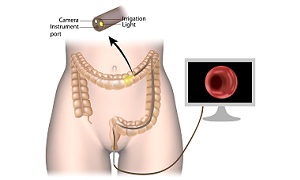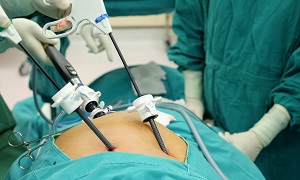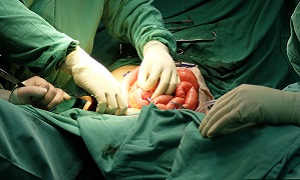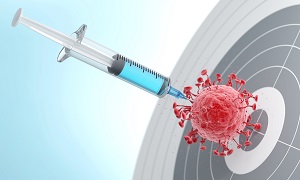Colon Cancer
Cancer is one of the diseases that involve abnormal growth of cells. This is an uncontrollable disease that can even affect other parts of the body. One such type of cancer is colon cancer, which affects the digestive tract. Cancer starts from the large intestine and reaches the colon, which is the last part of the digestive system. The disease generally affects the ones who are older in age, but the disease is not age bound and affects the person of any age.
Colon cancer, which is also known as colorectal cancer is the one that starts as a non-cancerous cluster of cells in the initial stage. These clusters form inside the colon and are known as polyps. As time passes, some of the polyps turn cancerous, which can lead to colon cancer. Colon cancer is a type of cancer that can be controlled. One can get treated by various methods like drug treatments, surgery, and radiation treatment.
Cause of Colon Cancer
For prevention one should be aware of the causes of the disease. Though doctors are not sure what are the main causes behind the spread of the colon cancer, the disease starts when the healthy cells in the colon change their DNA (mutation).
In general, the cells are healthy, they grow and divide, to keep the functioning of the body in order. But as the DNA of the cells gets damaged, it can become cancerous. This does not stop the division of cells, instead, they continue to grow and form a tumor. This cancerous cell, with time, grows and can affect other normal tissues. It can further affect the other parts of the body.
Symptoms of Colon Cancer
Some of the symptoms that can help you know if you are suffering from colon cancer are as follows:
- One of the symptoms of cancer is the change in bowel habits. The patient suffering from colon cancer may experience constipation or diarrhea. It can even lead to a change in the consistency of the stools of the patient.
- One can experience bleeding in stools or in the rectum.
- A patient suffering from colon cancer will undergo never-ending abdominal discomfort. These include cramps, gas, or pain.
- One can undergo an unexpected weight loss.
- Weakness and fatigue are the symptoms that can be an alarm for you to check yourself.
The person undergoing these symptoms should see the doctor as soon as possible as these can be the symptoms about the start of the colon cancer. Also, the symptoms may vary according to the size and location of cancer in the patient’s large intestine.
Diagnosis of Colon Cancer
Screening
For healthy people with no possible signs & symptoms, doctors recommend some screening tests to look for the non-cancerous colon polyps and signs of colon cancer. Figuring out the disease in its initial stage indicates higher chances of favorable treatment and a cure. Screening reduces your risk of dying because of colon cancer. Most of the people with a risk of colon cancer undergo screening around the age of 50 years. There are myriad screening options, each with their own drawbacks and benefits. When the doctor performs colonoscopy for screening, it is possible to remove the polyps before they turn into cancer.
Colonoscopy
Colonoscopy involves using a long, slender & flexible tube attached to a video camera and monitor. It helps the doctor to view the rectum and colon. Your doctor will pass surgical tools through the tube for collecting tissue samples, if he or she finds any suspicious areas. Next, the doctor will perform analysis and remove the polyps.
Blood tests
Treatment options for Colon Cancer
The location of your cancer and its stage help in determining the most suitable treatment for you. The most common treatment for colon cancer is surgery for the removal of cancer. However, there are other treatments like chemo and radiation treatments.
Surgery
Surgery for early-stage cancer
Your doctor will perform a minimally invasive approach to surgery, if your colon cancer is at its initial stages.
- Polypectomy– If your cancer is in its early stage, localized, contained with a polyp, and small, then your doctor will remove it completely in a procedure called colonoscopy.
- Endoscopic mucosal resection – Your doctor may remove the larger polyps during colonoscopy with the help of special tools. He or she may also remove the inner lining of the colon through endoscopic mucosal resection.
- Laparoscopic surgery –It is a minimally invasive surgery and removes polyps that colonoscopy doesn’t remove. Your surgeon will give numerous small incisions in the abdominal wall and insert the instruments with cameras to display the colon on your monitor during the procedure.
Surgery for advanced-stage cancer
- Partial colectomy– Your doctor will remove a part of your colon containing cancer along with a margin of the normal tissue during the procedure.
- Ostomy- This procedure involves creating an opening in the abdominal wall from a portion of the bowel. It held the elimination of stools in a bag that fits over the opening. The procedure is temporary sometimes to allow the colon or rectum to heal. However, it may be permanent in some cases.
- Lymph node removal- Your surgeon will remove the nearby lymph nodes during the surgery.
Surgery for very advanced cancer
Chemo
It uses drugs to destroy cancer cells. Your doctor will perform chemo after surgery if the cancer is large and extended up to the lymph nodes. Chemo helps reduce the risk of cancer recurrence as it kills any cancer cells present in the body. It also shrinks large cancer for its easy removal during surgery. The procedure also relieves the symptoms of cancer that are hard to remove by surgery and are spreading to the other body parts.
Radiation Treatment
Targeted Drug Treatment
Immuno Treatment

It is a drug treatment that fights cancer through your immune system. When your immune system fails to attack cancer, it is mainly because the proteins refrain it from recognizing the cancer cells. Immuno treatment interferes with this process and acts accordingly.
Palliative care










